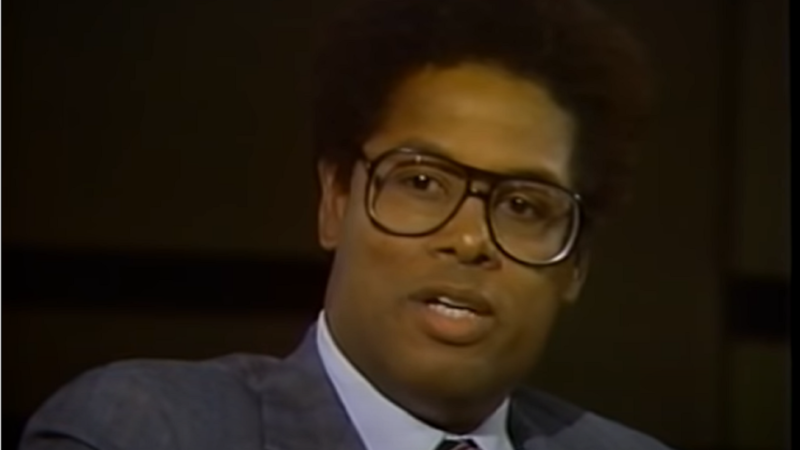Jason Riley: Thomas Sowell's Unique Insights on Race, Economics, and Politics
A new documentary and forthcoming biography pay tribute to the economist's intellectual fearlessness and commitment to empirical research.

Thomas Sowell is one of the most influential economists, syndicated columnists, and social critics of the past half-century, having authored provocative, best-selling books on everything from race relations to childhood development to, most recently, Charter Schools and Their Enemies. His masterworks include Knowledge and Decisions, which uses Friedrich Hayek's insights about distributed information to explain both how markets work and why intellectuals disdain markets; A Conflict of Visions, which explores the ideological origins of political struggles; and Basic Economics, a best-selling primer now in its fifth edition.
Sowell's inspiring life—he was born black and poor in North Carolina in 1930 and received his Ph.D. from the University of Chicago at the age of 38—and expansive work are now the subjects of a new documentary, Common Sense in a Senseless World (watch here) and a forthcoming biography titled Maverick.
Nick Gillespie speaks with Jason L. Riley, the author of the film and the biography, about why even at age 90, Sowell is more relevant today than ever. A fellow at The Manhattan Institute and a columnist for The Wall Street Journal, Riley tells me that Sowell's empirically driven research and his fearless engagement with even the most controversial topics are exactly what our world needs more of.


Show Comments (41)